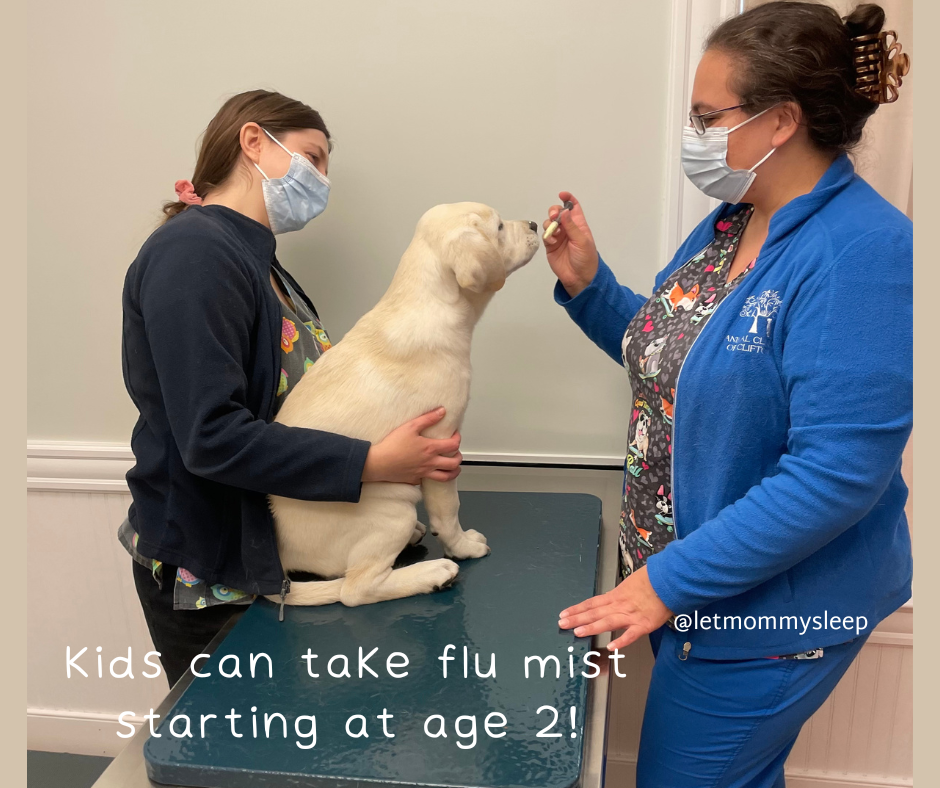The Flu Shot Facts vs Fake News
Updated August 1, 2023 – Did you know the flu shot has been around since 1960? Building on the success of targeted flu vaccines, annual flu shots were first recommended and used in children age 6 – 23 months old starting in 2002. Our resident experts, Public Health Nurse and Infection Prevention Specialist, Laura Hegarty-Moore and Rachel Wolf, RN dispel common myths in The Flu Shot Facts vs Fake News, below.
Why is it important to get your flu vaccine?
- Protecting Newborns and Infants – Every year there are about 36,000 deaths attributed to the flu. This statistic can be difficult to estimate due to having the flu at the same time as other issues such as underlying health conditions or age. And while we typically think of the elderly when we consider age as a factor in illness, newborns and infants also a vulnerable population due to their still-developing immune systems. The flu shot can help protect our oldest and youngest loved ones.
- Reduced Severity of Illness – You might still catch the flu, but if you’ve been vaccinated, the vaccine gives at least partial protection, meaning fewer days of feeling unwell and a reduced likelihood of serious complications. Less severe illness also keeps our healthcare systems from becoming overburdened, which helps all of us.
- The “Tripledemic” – Yes, COVID is still around. And yes, RSV is on the rise in babies and toddlers. Flu, COVID-19, and RSV are all respiratory viruses and will be spreading at the same time and it is possible to have illnesses at the same time. While the best prevention is to stay away from those who may be sick, the flu vaccine reduces your chances of getting the flu, which reduces your chances of coming down with a potentially serious double illness.

What about babies?
It’s recommended that everyone age 6 months and older get the flu shot. Before 6 months, babies’ immune systems are not mature enough for this vaccine. The flu mist, which is the nasal spray version of the vaccine is approved for people 2 years through 49 years of age.
You can keep yourself and your newborn protected even more by following these tips from our night nurses on remaining healthy during cold and flu season as well. Hand washing, staying hydrated and creating a barrier from germs can all help you help your baby.
The Flu Shot Facts vs Fake News – Can the flu shot give me the flu?
No. This is a myth. The flu vaccine is not capable of giving you the flu.
Flu vaccines are made with either inactivated (killed) virus, attenuated (weakened) virus, or recombinant (only a single protein from the virus is used) virus. These viruses and particles are no longer infectious.
Some people do get mild symptoms after the flu vaccine such as low grade, fever, headache, and muscle aches. This can happen for several reasons:
- Your immune system is building a response (a good thing!).
- Influenza viruses are circulating at this time, so you may have been exposed to flu shortly before or after becoming vaccinated. It takes your body two weeks after vaccination to build up protection against the flu.
- You may have also been exposed to one of the many other seasonal respiratory viruses out there, such as rhinovirus, commonly known as the cold virus.
While these symptoms are annoying, they’re considerably less severe than the actual flu illness and are not contagious.

The Flu Shot Facts vs Fake News – When is the best time to get the flu shot?
If you haven’t gotten your flu shot yet, the best time to get it is now! The ideal time to get the flu shot is about two weeks before flu season begins which is mid to late Fall. So, early-mid September is a good time to get vaccinated, but you can get one anytime.
Remember that some babies and children need two doses of the flu vaccine to keep them safe from flu. These doses occur 4 weeks apart. And while newborns cannot receive the vaccine, it’s recommended for babies 6 months and older.
What about pregnant women? Is it safe for them to get the flu shot?
Absolutely! The flu vaccine has been proven safe to take during pregnancy. In fact, studies show that in addition to protecting the pregnant mom, receiving the flu vaccine during pregnancy can protect the newborn from flu for several months after birth, when baby is too young to get a flu shot.
Laura Hegarty-Moore, Public Health RN says: Pregnant women, children, and babies are at increased risk of severe illness, hospitalization, and even death from flu. You could be saving your baby’s life by getting the flu vaccine while pregnant! I am currently pregnant and I was one of the first in line for my flu shot at the clinic this year!
Can I be contagious with flu before symptoms develop? What about after symptoms are gone?
Yes, you can be contagious with flu 1 day before symptoms start. You’re still considered contagious for 7 days after symptoms start and up until symptoms resolve. For example, even if your symptoms went away after 5 days, you can still be contagious for at least 2 more days! Young children and people who have weak immune systems can be contagious for even longer. This is why it’s also important that anyone caring for your little one is vaccinated as well.
Categories
- Corporate Care & Partners
- COVID19 Archive
- En Espanol
- Expert Guides
- Hiring a Night Nanny
- Infant Safety
- Infant Sleep Hub
- Newborn Care
- Postpartum Health
- Twins & Multiples
- Work as a Night Doula
- zPost Archives
